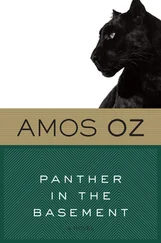Amos Oz - Where the Jackals Howl
Здесь есть возможность читать онлайн «Amos Oz - Where the Jackals Howl» весь текст электронной книги совершенно бесплатно (целиком полную версию без сокращений). В некоторых случаях можно слушать аудио, скачать через торрент в формате fb2 и присутствует краткое содержание. Год выпуска: 2012, Издательство: Houghton Mifflin Harcourt, Жанр: Современная проза, на английском языке. Описание произведения, (предисловие) а так же отзывы посетителей доступны на портале библиотеки ЛибКат.
- Название:Where the Jackals Howl
- Автор:
- Издательство:Houghton Mifflin Harcourt
- Жанр:
- Год:2012
- ISBN:нет данных
- Рейтинг книги:4 / 5. Голосов: 1
-
Избранное:Добавить в избранное
- Отзывы:
-
Ваша оценка:
- 80
- 1
- 2
- 3
- 4
- 5
Where the Jackals Howl: краткое содержание, описание и аннотация
Предлагаем к чтению аннотацию, описание, краткое содержание или предисловие (зависит от того, что написал сам автор книги «Where the Jackals Howl»). Если вы не нашли необходимую информацию о книге — напишите в комментариях, мы постараемся отыскать её.
Where the Jackals Howl — читать онлайн бесплатно полную книгу (весь текст) целиком
Ниже представлен текст книги, разбитый по страницам. Система сохранения места последней прочитанной страницы, позволяет с удобством читать онлайн бесплатно книгу «Where the Jackals Howl», без необходимости каждый раз заново искать на чём Вы остановились. Поставьте закладку, и сможете в любой момент перейти на страницу, на которой закончили чтение.
Интервал:
Закладка:
2
AND THEN the enemy threw up into the sky three nervous flares, red, green, and purple. Dar an-Nashef crouched there at the foot of the eastern mountains, chewing its fingernails in fear. All its lights were extinguished. The darkness of guilt or of terror brooded over its cottages. Only the beam of the searchlight rose from it, probing the sky as if the danger lay there. At that very moment our reconnaissance party was making its way through the dense orchards toward the crossroads that were to be blocked against enemy reinforcements.
The general-duty men, those who never took part in any raid and for that reason were dubbed by Itcheh Les Misérables, began crowding around the trucks, staring awkwardly at the combat troops. They tried to cheer them up with jokes. Nahum Hirsch put his arm around little Yonich, then clapped him twice on the shoulder and whispered, “A sheep in wolf’s clothing, eh?” It was supposed to sound ironical, but his voice betrayed him, and the words rang with venom.
Yonich was not one of the combat troops but a general-duty man. He was a refugee from Yugoslavia, a gloomy little survivor who served the men of our unit from behind the canteen counter. Sometimes they called him the Biscuit Brigadier. His face was deformed, set in a permanent grimace. The right side of his mouth was always smiling as if he found everything endlessly funny; the left was as grim as death. Some said that the Germans had twisted his face once and for all in some labor camp or in the selection process. Or perhaps it was the Yugoslav partisans who had broken his chin or his jaw with a punch, telling him to stop getting on their nerves with his Jewish misery.
Why had they decided this time to put little Yonich, of all people, into the task force, and authorize him to join in the raid against Dar an-Nashef? Perhaps they saw him as a sort of mascot. His little body looked ludicrous, almost pathetic, in the straps of the tattered harness. Evidently one of the officers had seen some kind of subtle humor in putting Yonich in the task force. He was to serve as personal runner to the unit commander, keeping close to him throughout the progress of the battle and ready to leap up when necessary and run to the commanders of the back-up troops, keeping communications going. He had been told: “You’re going to have to run like hell, pal. Imagine that the biscuits are here and the customer’s over there, and at the same time there’s somebody waiting for soda and somebody else who wants cigarettes and matches.”
Nahum Hirsch said: “Yonich, you’re going into battle like Samson’s little brother, and you don’t understand that they’re just treating you as a joke. Lucky that the Arabs can’t see who’s coming to beat the shit out of them.”
Yonich turned around, and Nahum saw the twisted half-smile and then the front teeth protruding from the cleft lips. And he stepped back.
At that moment the tank engines suddenly started up beside the pine grove, and the earth shook. These tanks would not participate directly in the raid against Dar an-Nashef but were to be deployed in the mountain passes to anticipate any possible development, however remote. The roar of the mighty engines set all hearts pounding. The signal was given and the convoy set out toward the mouth of the wadi. There the troops would be ordered down from the transports and would set out on foot to cross the dense orchards, then march over the frontier and to the outskirts of Dar an-Nashef from the northwest and the southwest. The girls waved their hands, bidding them good-bye and good luck.
Nahum left the parade ground. He sat down at the foot of a whitewashed eucalyptus tree. Little fragments of whitewash fell from the tree trunk, and some of them stung his sweating brow. As always, his thoughts turned to men and women, and not to the other creatures of which the night is full. The sounds of the night came and dispersed his thoughts.
3
OUR UNIT could boast of a distinguished commander and many daring officers, but Itcheh was our pride. He was a king. It was not only Bruria who loved him and bore everything in silence. We all did. He loved to pinch everybody, the soldiers, the girls, Bruria herself. She would say, “You’re disgusting, stop that,” but these words always came from her lips warm and moist, as if she were really saying, “More, more!” And he loved to insult her and even to humiliate her in the presence of the entire battalion, from our commanding officer to the last of the general-duty men, Yonich or Nahum Hirsch or somebody of that sort. He used to scold Bruria, telling her to leave him alone, stop running after him all day, and come to him only at night, stop clinging to him as if she were his mother or he were her father: he’d had enough, he was sick of her.
When his insults were more than she could bear, she would sometimes go to the operations room to seek consolation from Rosenthal, the operations officer. Let them tell Itcheh, let him be jealous, she didn’t care, he deserved it. Rosenthal did not treat her as Itcheh did. He was not the type to fling up her skirt or thrust his hand inside her blouse when there were drivers and supply men standing around. His courting manners were like something out of a film, and he often tried to impress her by speaking English with a slight American accent. He was slim and athletic, he dressed immaculately, and his compliments were as deft as his tennis shots. Often, when he sat with Bruria in the operations room, he would translate for her into Hebrew the contents of the pornographic magazines that his brother had brought from Europe. But he did not dare touch her, or perhaps he did not want to; if ever he did touch her, it was gently and courteously. In the end she always came back to Itcheh, chastened, moaning and servile, almost begging for punishment, and everything was as before. The whole battalion was waiting for the day when Itcheh’s jealousy would explode and there would be a showdown with the soft-spoken operations officer. In fact, Itcheh surprised us and showed not the slightest hint of jealousy; he only laughed and told Bruria to go to blazes, to leave him alone, he was sick of her and he was sick of them all and why did she hang around him all day.
After every reprisal operation Itcheh’s name was heard in high military circles. Twice he was seen in newsreels, and once his picture appeared on the cover of the army magazine. It was he who discovered the Viper’s Path, leading from the south of Jerusalem across the desert of Judea and through enemy territory to Ein Gedi on the shores of the Dead Sea in one night’s march. It was he who settled a longstanding account with the Bedouins of the tribe of Arab al-Attata. The Divisional Commander himself once described him as the spiritual brother of the warriors of King David in Adullam or of the Gideonites and Jephthahites. In the course of one raid he leapt, alone, into a cave where dozens of enemy soldiers were entrenched. He so terrified them with his ferocious, blood-curdling yells that they melted away before him as he darted among the murky rifle pits throwing in hand grenades. Petrified by astonishment or horror, the enemy troops gave themselves up, as if mesmerized, to the bursts of fire from his machine gun. Alone he entered the cave and alone he emerged from it, panting and disheveled, roaring and waving his gun above his head.
Itcheh let his beard grow wild. The hair on his head was thick and matted and seemed always to be full of dust. His beard began at his temples and almost met his thick eyebrows, flowing down over his cheeks and neck and merging without a break into the bear’s fur that covered his chest and arms and perhaps the whole of his body.
Sometimes Itcheh surprised Nahum Hirsch in the tin shower hut. The medical orderly would dry himself in a hurry and leave without bothering about the soap bubbles left in his armpits. For it was well known that Itcheh always made a point of humiliating the supply men and the drivers and the orderlies, his greatest admirers, those whom he called Les Misérables. Yet he would sometimes astonish them with an act of unexpected generosity. He would give one of them a pistol taken from a dead Syrian officer, or he would take one of the supply men aside and talk to him as an equal, chatting about politics and girls and striking the poor fellow dumb with his frankness.
Читать дальшеИнтервал:
Закладка:
Похожие книги на «Where the Jackals Howl»
Представляем Вашему вниманию похожие книги на «Where the Jackals Howl» списком для выбора. Мы отобрали схожую по названию и смыслу литературу в надежде предоставить читателям больше вариантов отыскать новые, интересные, ещё непрочитанные произведения.
Обсуждение, отзывы о книге «Where the Jackals Howl» и просто собственные мнения читателей. Оставьте ваши комментарии, напишите, что Вы думаете о произведении, его смысле или главных героях. Укажите что конкретно понравилось, а что нет, и почему Вы так считаете.












